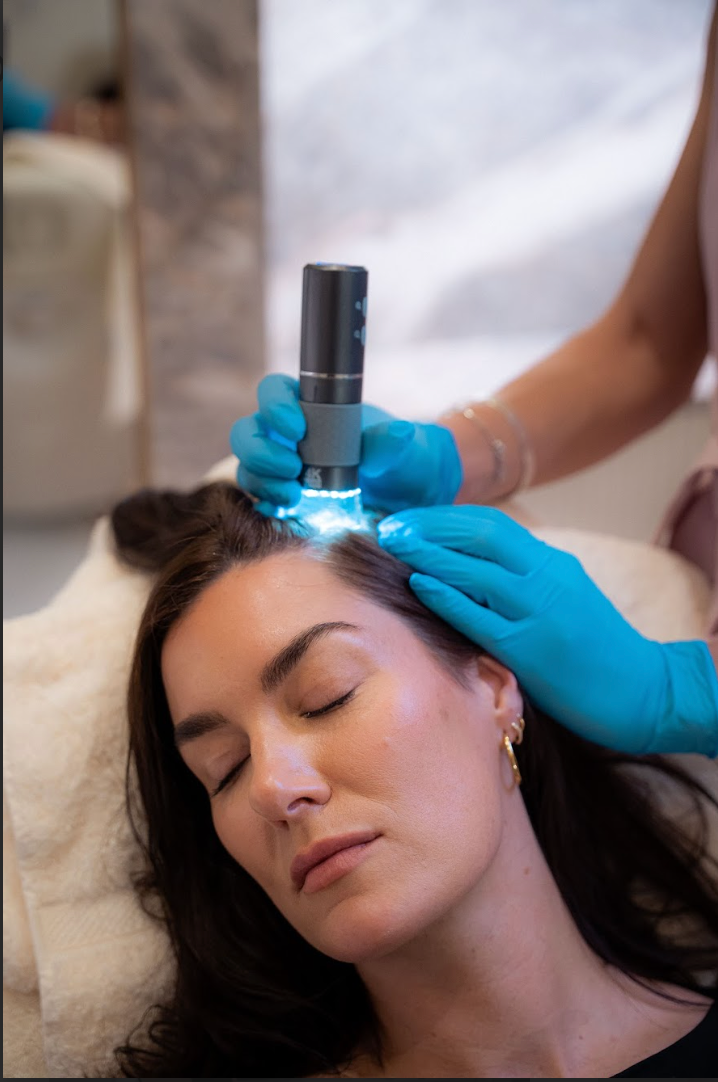By Natalia Souza, World Trichology Society - Certified Trichologist and Hair Specialist
With over 18 years of experience, I, Natalia Souza, have dedicated my career to advancing the field of hair care. Growing up in Brazil, my passion for hair health was ignited early, leading me to become a WTS-certified trichologist.
In my practice, I recognised a significant gap in treatments for certain hair loss conditions, particularly those linked to autoimmune disorders and internal inflammation. Hair loss is a universal issue, and my mission is to offer inclusive and comprehensive solutions for everyone affected.
Autoimmune disorders and internal inflammation are significant contributors to hair loss, affecting a substantial portion of the population. Studies estimate that autoimmune diseases impact approximately 5-8% of the global population, with conditions like Alopecia Areata directly linked to hair loss. Furthermore, chronic inflammation, often stemming from autoimmune responses, affects millions worldwide, contributing to various hair loss conditions, including male and female pattern hair loss. Addressing these underlying inflammatory processes is crucial for developing effective treatments for the many individuals struggling with these issues.
A paper published in BDPI in July 2023 by Nicholas Sadgrove, Sanjay Batra, David Barreto, and Jeffrey Rapaport titled “An Updated Etiology of Hair Loss and the New Cosmeceutical Paradigm in Therapy: Clearing the Big Eight Strikes” highlights the effectiveness of anti- inflammatory therapies and dietary modifications in resolving hair loss symptoms in all tested cases.
Another paper, “The Inflammatory Aspect of Male and Female Pattern Hair Loss,” by Nadia Peyravia, Sadna Deo, Sylvia Daenerys and Joaquin J Jimenez published in 2020 states: “Conclusively, these findings suggest inflammation is elemental to MPHL and FPHL pathology and reinforce the need to address inflammation in prospective therapeutic developments. As the inflammatory aspect presents a promising therapeutic approach to slowing down hair loss, targeting inflammation may be used to further the efficacy of existing treatments. Future directions should include targeting inflammation for enhancing MPHL and FPHL management.”
These insights reinforce the importance of addressing inflammation in developing effective hair loss treatments, a focus central to my practice.
The Reflect Hair Approach: A Breakthrough in Hair Loss Treatment
To address complex hair loss issues, I developed a pioneering program that incorporates DNA testing to uncover underlying conditions. This personalised approach is enhanced through a collaboration with Sascha Landskron, a seasoned nutritionist and dietician with over 20 years of expertise in nutrigenomics and E50 Exosomes. Together, we target the root causes of hair loss through tailored nutrition and supplementation.
Program Phases:
1. Consultation with DNA Test: This initial 45-minute session includes a mouth swab for DNA analysis.
2. DNA Test Interpretation with Sascha: Five weeks later, a one-hour review with Sascha to discuss results.
3. Detox: A month-long detoxification with a personalised diet and supplement plan.
4. Restart: Post-detox, we reset the gut with specific dietary plans and begin topical hair treatments.
5. Maintain: Ongoing maintenance with diet and supplements to prevent future autoimmune-related hair loss.
Advanced Treatments: E-50 Exosomes Hair Therapy
Upon completing the recovery phases, we offer advanced treatments such as the E-50 Exosomes hair therapy. This treatment leverages the regenerative properties of exosomes, extracellular vesicles that contain growth factors and genetic material crucial for cellular communication and tissue repair.
How E-50 Exosomes Work:
• Regeneration: Exosomes stimulate dormant or damaged hair follicles by enhancing their microenvironment.
• Cellular Proliferation: Promotes cell growth and reduces inflammation.
• Improved Blood Flow: Encourages hair follicles to transition from the resting
(telogen) phase to the active growth (anagen) phase.
• Rejuvenation: Growth factors in exosomes rejuvenate and repair follicular cells,
potentially increasing hair density and quality.
This treatment is administered via micro-needling, a minimally invasive procedure that often shows benefits after the first session.
In addition to exosomes therapy, we also introduce advanced topical applications to enhance scalp and hair health. These treatments are tailored to each patient's specific needs, focusing on nourishing the scalp, stimulating hair follicles, and promoting healthy hair growth.
A Holistic Approach to Hair Recovery
Our goal at Reflect Hair is to provide a nutritional and medical solution to clients suffering from hair loss by integrating advanced nutrigenomics with cutting-edge hair regeneration treatments. We are committed to offering a smooth, effective and sustainable path to hair recovery, restoring both hair health and self-assurance in our clients from the inside out.


